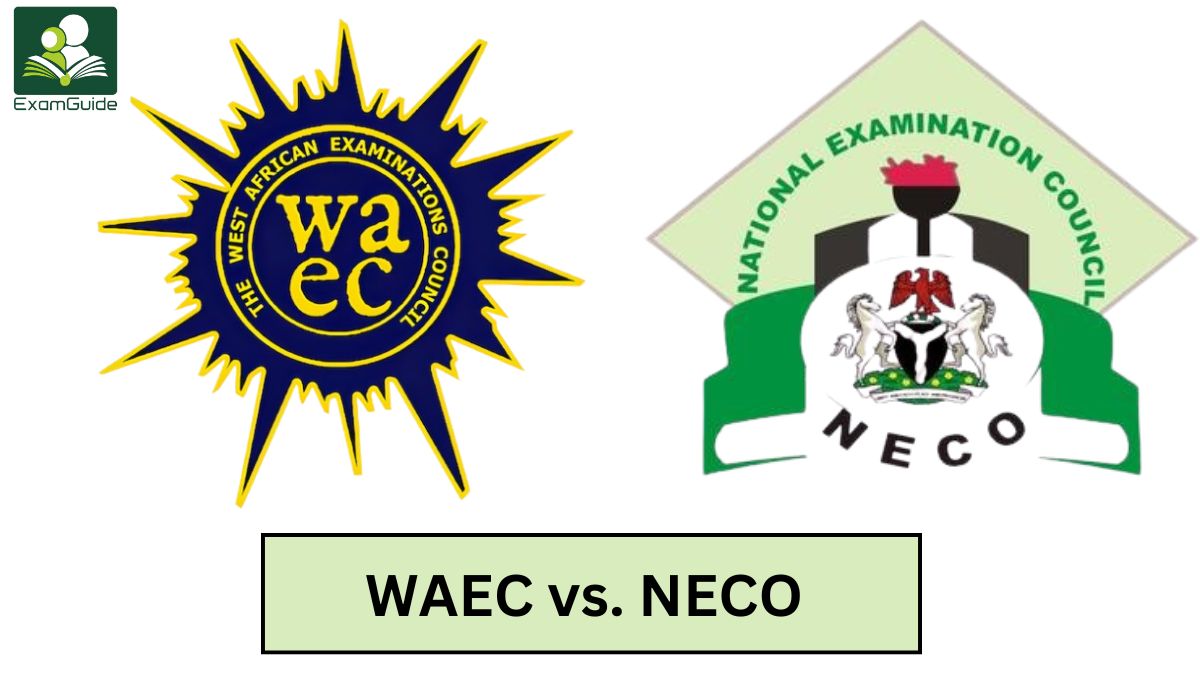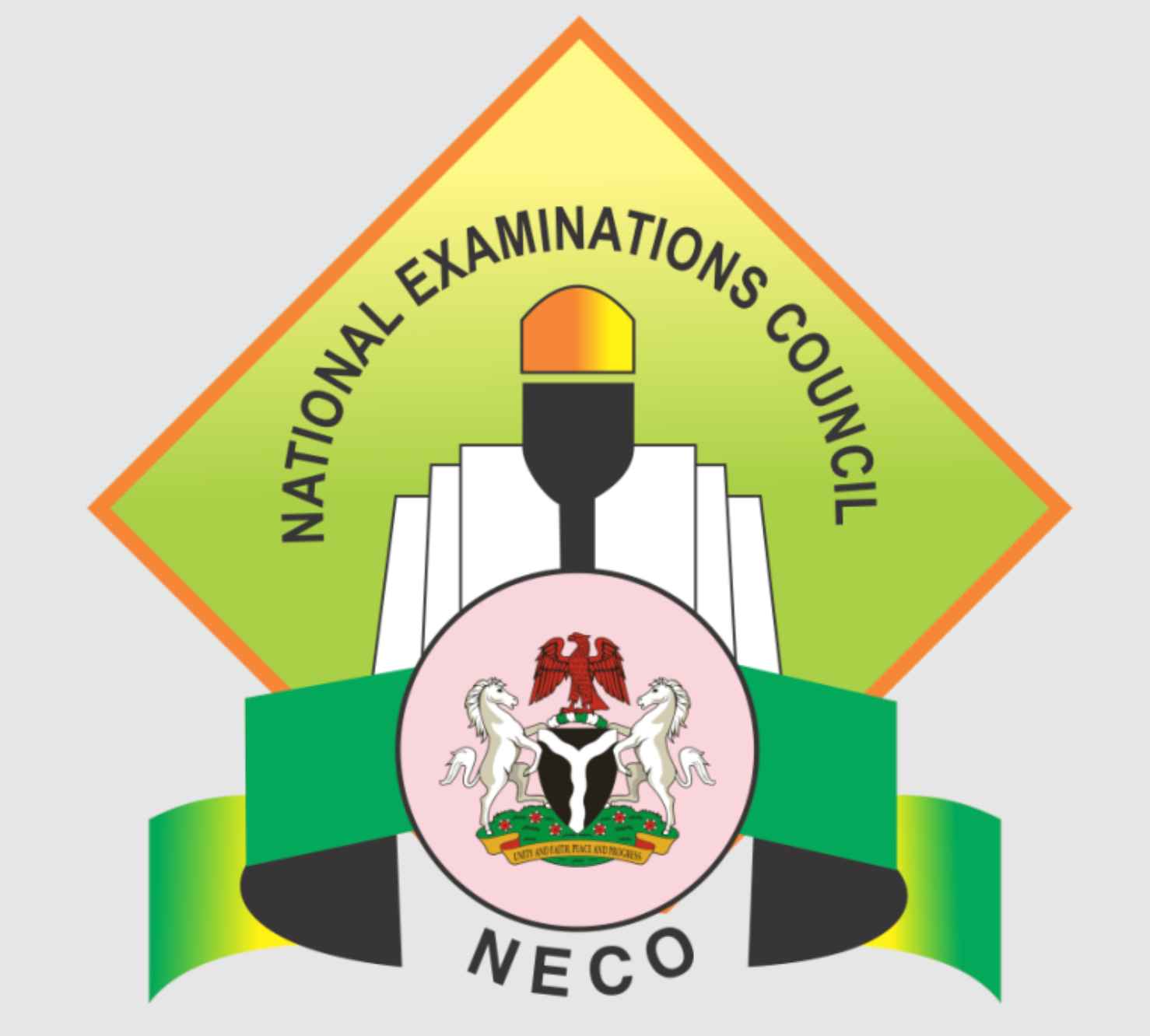
WAEC vs. NECO: What Are the Differences and Which Should You Choose?
When it comes to secondary school education in Nigeria, students aiming for higher education or professional certifications must pass external exams. Two of the most important standardized examinations are WAEC (West African Examinations Council) and NECO (National Examinations Council).
Although both exams serve the same purpose, they have notable differences that can affect a student's decision on which to choose.
This article will break down the differences between WAEC and NECO and help you make an informed choice.
Table of Content
Key Differences Between WAEC and NECO
Similarities Between WAEC and NECO
Which Should You Choose? WAEC OR NECO?
What subjects are offered in WAEC and NECO?
When are WAEC and NECO exams conducted?
How do I register for WAEC and NECO exams?
How long does it take to get results for WAEC and NECO?
Can I combine WAEC and NECO results for university admission?
Are NECO and WAEC grading systems the same?
Overview of WAEC and NECO
WAEC (West African Examinations Council)
WAEC is an international examination body that conducts the West African Senior School Certificate Examination (WASSCE). It serves English-speaking West African countries, including Nigeria, Ghana, Sierra Leone, Liberia, and The Gambia. WAEC offers both school-based exams (May/June) and private candidate exams (November/December).
- Target Audience: WAEC is intended for students in the final year of senior secondary school and private candidates who need a secondary school leaving certificate.
- Curriculum Coverage: The exam is based on the curriculum developed by the Ministry of Education in Nigeria and other West African countries.
- International Recognition: WAEC is widely accepted by universities across Africa, Europe, the US, and other parts of the world.
NECO (National Examinations Council)
NECO is a Nigerian examination body that conducts the Senior Secondary Certificate Examination (SSCE). Established in 1999, NECO is unique to Nigeria and offers school-based (June/July) and private candidate (November/December) exams as well.
- Target Audience: NECO is aimed at Nigerian students in their final year of secondary school and private candidates within Nigeria.
- Curriculum Coverage: Like WAEC, NECO's curriculum is based on the Nigerian educational system.
- National Recognition: NECO is widely accepted by Nigerian universities, polytechnics, and colleges of education.
Key Differences Between WAEC and NECO
1. Geographical Reach and Recognition
WAEC is an internationally recognized exam body, whereas NECO is only recognized within Nigeria. If you plan to study abroad, WAEC would be the better option because it is accepted in many international universities and institutions. NECO, on the other hand, is suitable for students planning to continue their education in Nigeria, as it is accepted by all Nigerian universities and tertiary institutions.
2. Exam Scheduling
- WAEC: The May/June WASSCE for school candidates takes place simultaneously across all five West African countries, meaning the timing is synchronized. The private candidate exam (Nov/Dec) also follows a strict timetable.
- NECO: The NECO June/July exam is scheduled exclusively for Nigerian students. It allows more flexibility because it is conducted only within the country, and students often find it more adaptable to their school calendar.
3. Exam Structure and Difficulty
- WAEC: Due to its regional nature, WAEC may be slightly more challenging as it must meet the educational standards of multiple West African countries. The questions can sometimes be more detailed and comprehensive, covering broader topics.
- NECO: NECO focuses specifically on the Nigerian curriculum and tends to follow the familiar structure of the Nigerian education system. Students often find NECO more straightforward in terms of question types and exam structure, as it is closely aligned with the Nigerian syllabus.
4. Cost of Examination
The cost of registering for WAEC is generally higher than that of NECO. WAEC exams are often more expensive due to their international nature, as the funds are used to administer exams across multiple countries. NECO, being a national examination body, offers a more affordable option for Nigerian students.
5. Marking Scheme and Results Release
- WAEC: WAEC uses a marking scheme consistent across the five countries. It takes a bit longer to release results, usually around three months after the exam.
- NECO: NECO results are typically released within 45-60 days. NECO also provides a more accessible grading system tailored for Nigerian students, and its marking scheme may be more lenient in some areas compared to WAEC.
Similarities Between WAEC and NECO
Despite the differences, WAEC and NECO have several similarities:
- Subjects: Both exams offer a wide range of subjects, including core subjects like English, Mathematics, and Sciences, as well as electives.
- Eligibility: Both exams are open to students in their final year of secondary school and private candidates.
- Educational Value: Both WAEC and NECO are essential for obtaining a Senior Secondary School Certificate (SSCE), which is the minimum requirement for admission into Nigerian higher institutions.
- Acceptance in Nigerian Universities: All Nigerian universities accept both WAEC and NECO results for admissions.
Which Should You Choose? WAEC OR NECO?
1. If You Plan to Study Abroad
WAEC is the better option if you are considering studying abroad in the future. Most foreign universities accept WAEC results as part of their admission requirements. NECO, while widely recognized within Nigeria, may not be accepted by many international institutions.
2. If You’re Focused on Nigerian Universities
For students whose educational goals are within Nigeria, both WAEC and NECO are accepted by Nigerian universities, polytechnics, and colleges of education. NECO offers the advantage of a more locally-focused exam structure and is often more affordable.
3. Timing and Availability
If you miss WAEC’s May/June school-based exam, you have the option of NECO in June/July. This can be a backup plan for students who want to avoid the private candidate exams later in the year.
4. Cost Considerations
If cost is a significant factor, NECO may be the more economical choice. However, if you require a more internationally recognized certificate, investing in WAEC may be worth the additional cost.
5. Exam Difficulty
Students who feel more comfortable with the Nigerian curriculum and prefer a straightforward approach may opt for NECO. However, those looking for a more challenging exam that covers a broader West African syllabus may choose WAEC.
What subjects are offered in WAEC and NECO?
Both WAEC and NECO offer a wide range of subjects, including:
- English Language
- Mathematics
- Sciences (Physics, Chemistry, Biology)
- Social Sciences (Economics, Geography)
- Vocational subjects (Agriculture, Home Economics)
- Arts and Humanities (Literature, History, Government)
Students are required to take core subjects like English and Mathematics, while other subjects depend on the student’s chosen field of study.
When are WAEC and NECO exams conducted?
- WAEC May/June: For school candidates.
- WAEC Nov/Dec: For private candidates.
- NECO June/July: For school candidates.
- NECO Nov/Dec: For private candidates.
How do I register for WAEC and NECO exams?
For WAEC, students typically register through their schools for the May/June exam. Private candidates for the Nov/Dec exams can register online via the official WAEC portal or through designated WAEC registration centers.
For NECO, registration for the June/July exam is also done through schools. Private candidates for the Nov/Dec exams can register online through the NECO portal or visit an accredited registration center.
How long does it take to get results for WAEC and NECO?
The release time for WAEC and NECO results differs slightly:
- WAEC: Results are typically released about 2 to 3 months after the exam. For example, the May/June school candidates' results are often available by August or September, while the November/December private candidates' results may come out by February of the following year.
- NECO: NECO results are usually released faster, typically within 45 to 60 days after the exam. For school candidates taking the June/July exams, results are often available by September, and the November/December private candidates' results are usually out by January.
Both bodies have worked to reduce result release times in recent years to ensure students can meet university application deadlines.
Can I combine WAEC and NECO results for university admission?
Yes, you can combine WAEC and NECO results for university admission in Nigeria. Most Nigerian universities and polytechnics accept the combination of results from both exams, provided that:
- The combined results meet the required subject combinations and grades for the desired course of study.
- The results are from a maximum of two sittings (one WAEC and one NECO or two WAEC or two NECO).
This flexibility allows students to improve their chances of gaining admission if they performed better in different subjects across both exams.
Are NECO and WAEC grading systems the same?
Yes, NECO and WAEC use similar grading systems for their exams, making it easier to compare results from both bodies. The grading scale is as follows for both WAEC and NECO:
- A1: Excellent (75% - 100%)
- B2: Very Good (70% - 74%)
- B3: Good (65% - 69%)
- C4: Credit (60% - 64%)
- C5: Credit (55% - 59%)
- C6: Credit (50% - 54%)
- D7: Pass (45% - 49%)
- E8: Pass (40% - 44%)
- F9: Fail (0% - 39%)
While both WAEC and NECO use this grading system, the exact marking schemes or methods of evaluation may vary slightly between the two examination bodies. Nonetheless, the overall structure and interpretation of grades are the same.
Conclusion
Choosing between WAEC and NECO depends on your academic goals, budget, and plans. WAEC is ideal for students who want an internationally recognized certificate, while NECO is great for those who plan to study within Nigeria and need a more affordable, Nigeria-specific examination.
Regardless of the option you choose, both exams open doors to higher education and future opportunities.
Before making a decision, take the time to evaluate your goals, prepare well, and focus on excelling in whichever exam you choose.
Frequently Asked Questions
How do universities compare WAEC and NECO results?
Since both WAEC and NECO follow similar grading systems and syllabi, universities and other higher institutions in Nigeria consider the results equally. Admission decisions are based on the grades in the required subjects, regardless of whether the results are from WAEC or NECO.
What is the minimum age to sit for WAEC and NECO?
There is no officially specified minimum age for sitting for WAEC and NECO, but students are usually expected to have completed senior secondary school education (around the age of 16 to 18).
Can I take WAEC or NECO outside Nigeria?
WAEC exams are administered in the five West African countries: Nigeria, Ghana, Liberia, Sierra Leone, and The Gambia. NECO, on the other hand, is a Nigerian exam and is only conducted within Nigeria.
Are WAEC and NECO computer-based exams?
No, both WAEC and NECO currently use paper-based testing. Students answer questions in booklets provided by the exam body. However, there are discussions about incorporating technology into future exams.
What happens if I lose my WAEC or NECO certificate?
If you lose your WAEC or NECO certificate, you cannot get a replacement. However, you can apply for a Confirmation of Result or Attestation of Result from the respective exam body. This document can be used in place of the original certificate for job applications, university admissions, and other purposes.
Which exam should I choose if I want to study abroad?
If you’re aiming to study abroad, WAEC is the better choice because it is recognized by universities worldwide. NECO, while accepted in Nigeria and some West African countries, is not as widely recognized internationally.
Can I take both WAEC and NECO exams?
Yes, many students choose to take both exams to increase their chances of achieving good grades. This gives students flexibility, allowing them to use either result to apply for admission to tertiary institutions.
How much does it cost to register for WAEC vs. NECO?
WAEC is generally more expensive than NECO due to its international nature and the logistics involved in conducting exams across multiple countries. NECO, being a Nigerian national exam, is more affordable.
No comment found
Related Posts

How to Get the Best Out of WAEC and NECO Online Mock Exams with CBT

WAEC Further Extends Registration Period for 2024 Nov/Dec WASSCE

NABTEB GCE 2024/2024 Registration Guidelines: How to Apply

NECO Sets New Rules to Combat Exam Malpractice: Warn Schools to Avoid Using of Proxy for Registrations

When is WAEC GCE Second Series Starting in 2024?


